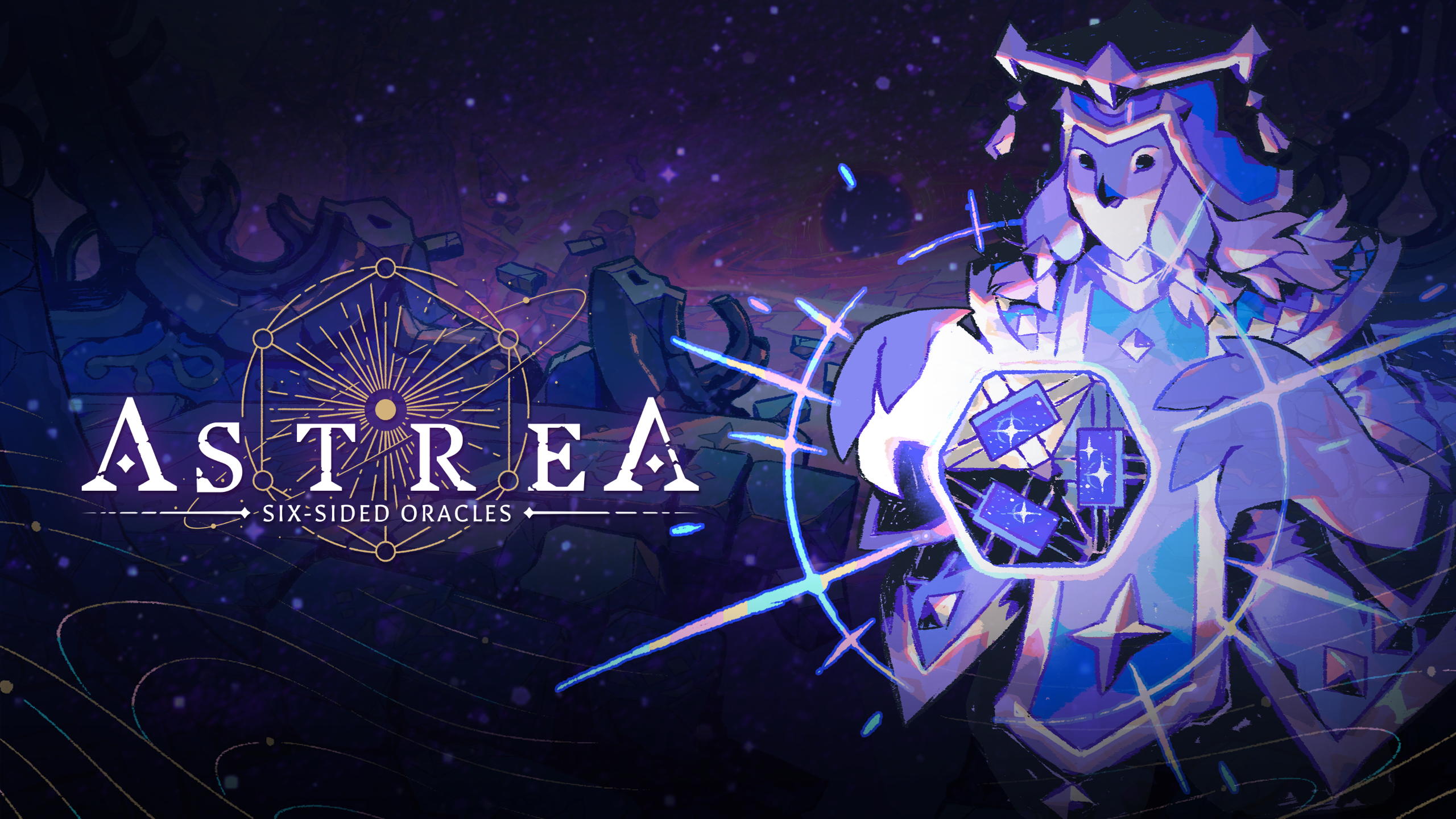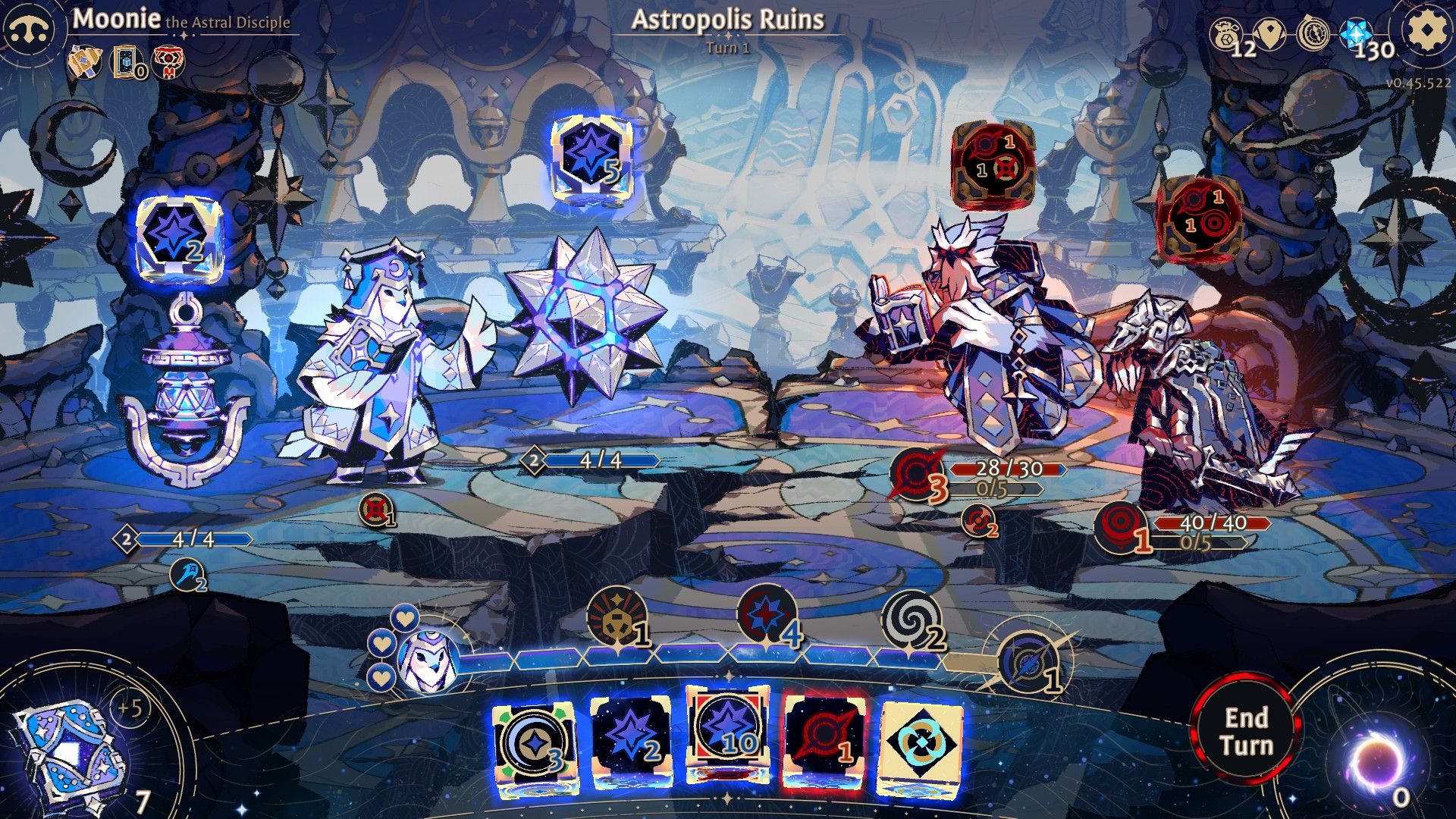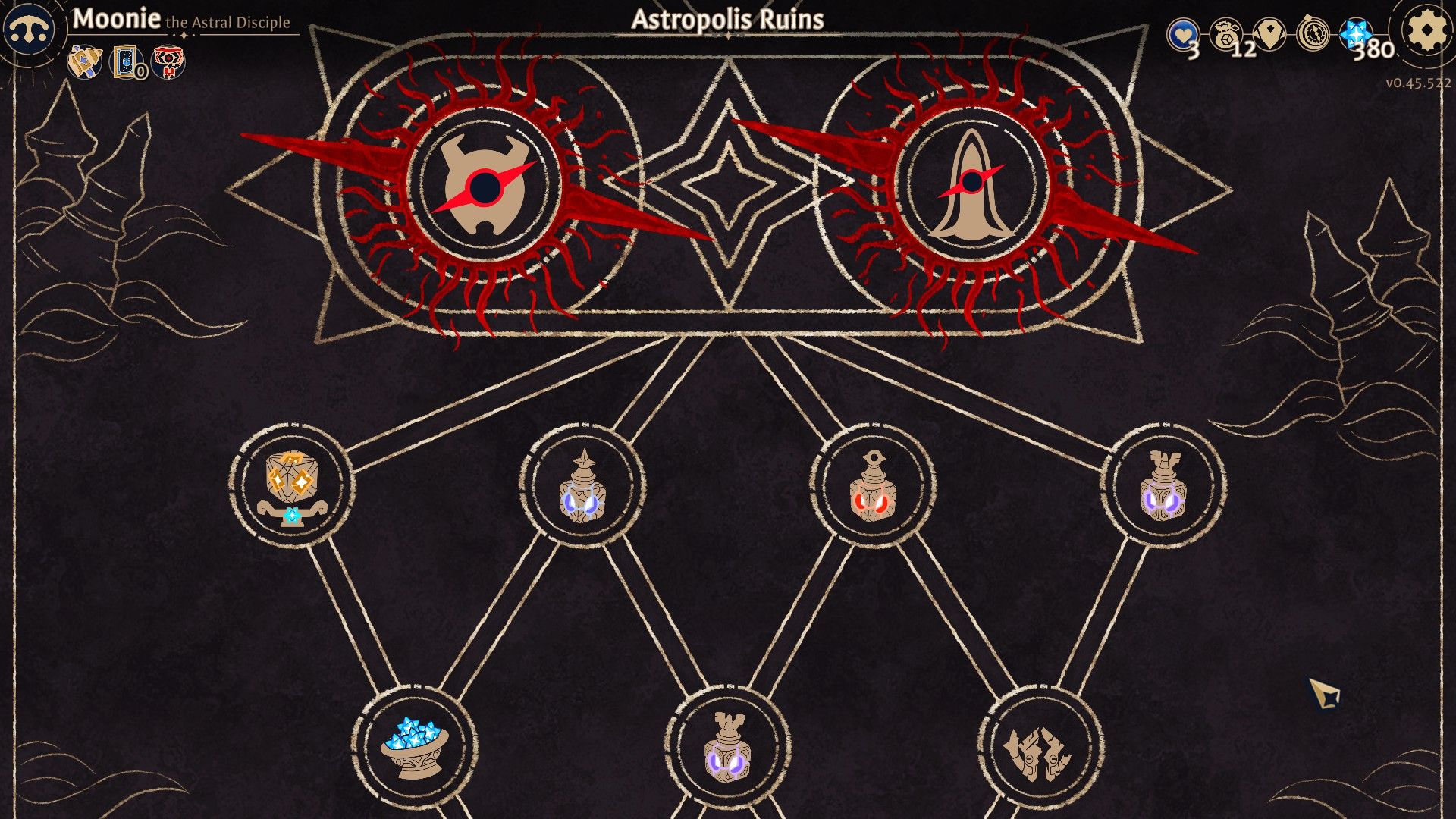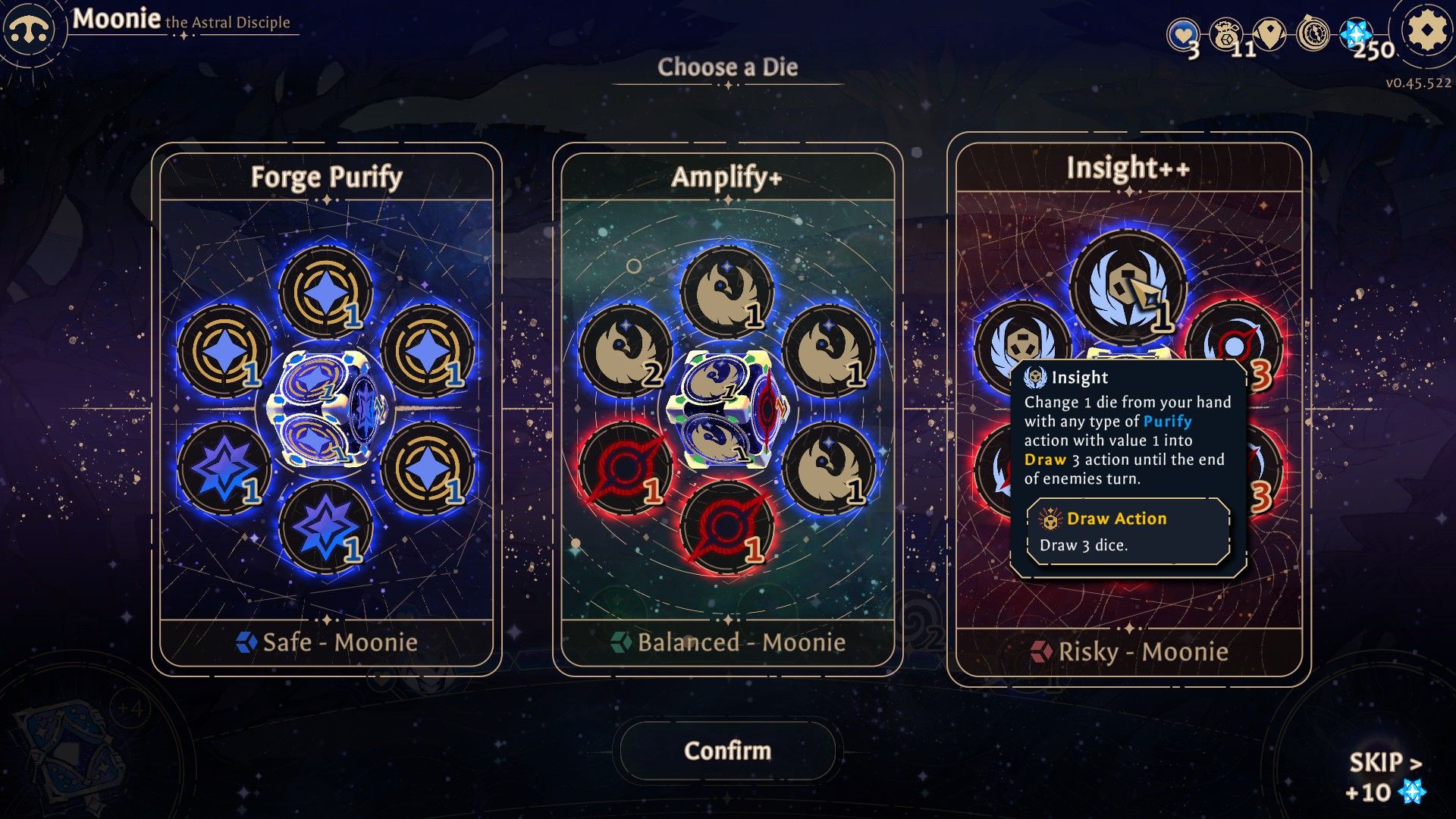Astrea: Six Sides to Victory
Six is the magic number

For a subgenre that's only been around for about four years, the roguelike deckbuilder has enjoyed a tumultuous history. The runaway success of Slay the Spire in 2019 sent a lot of small developers running to try and emulate its success, resulting in a flooding of knockoff titles in the last year or so.
Realizing that people might get tired of seeing endless lists of the same game, the more forward-thinking devs have been looking for ways to mix up the formula. One way to do this is to substitute the cards for dice, putting a twist on the usual strategy. Astrea: Six-Sided Oracles is one of the first titles to use this mechanic and does a fine job of showing what it can do.

The six planets orbiting the star Astrea were once paradise worlds. The star's mystical light gave rise to the people of those planets, who were in turn attended to by the oracles - six people endowed with special gifts. The power of Astrea allowed these oracles to create relics and thus spread their divine gifts to everyone.
That was before the Crimson Dawn. Astrea fell, opening up a void filled with fire, darkness, and corruption. Anything that was close to that void was physically and mentally twisted by its profane energy, with living creatures and arcane devices alike transformed into mindless monsters. Worst of all, the oracles - the only ones with the potential to contain that corruption - disappeared in the wake of the disaster.
Generations later, a spark of hope has emerged. Six people from different parts of the world have found the relics left by the oracles, becoming the heirs to their legacy. It's up to them to travel into the void, rescue the denizens who've been corrupted, and put an end to the crisis once and for all.

As stated previously, Astrea is a deckbuilder and has the elements we've come to associate with the subgenre. The player must travel through a randomly generated map, defeating monsters, drafting dice, collecting bonuses, and ultimately defeating a series of bosses.
The key difference is that, unlike cards, dice don't always show the same result. After drawing a "hand," the game rolls the dice to give the player (and enemies) actions for that turn. Many die have at least one side with a negative action, and if one of those comes up, the player is required to play it before ending the turn. More powerful dice tend to have more negative sides, so the player has to choose between building a safe, predictable deck or a high-risk, high-reward deck.
But risk is a relative concept, especially with Astrea's somewhat unorthodox life system. Rather than an HP counter ticking down to zero, all characters have a bar that moves between purity and corruption. Most die faces will advance the bar toward one of these two ends, so a purification face can be used to harm a monster or heal an ally. In some cases, it may be worthwhile to risk a little pain, as an oracle at high corruption gains access to "Virtues" - additional abilities that can be played for free.

It might take a while to wrap your head around the system, as it is a lot different than what you'll see in similar games. Managing risk, which is already a key component in any roguelike game, is even more essential here. And even once you've figured out how to handle the mechanics with Moonie, the beginner oracle with the most straightforward play style, the later characters can throw a wrench into things.
Ironically, despite the steep difficulty curve with the mechanics, the gameplay itself is pretty forgiving by deckbuilder standards. For each oracle, it took me just two runs to defeat the last boss: One to get a handle on their novel mechanics, and a second to accomplish the task. Granted, "easy" is a relative term for a subgenre that's notorious for its punishing difficulty, but suffice it to say that Astrea is a suitable entry point for anyone who found Slay the Spire to be frustrating.
The main takeaway from Astrea is that there is still a lot of room left for ingenuity in the roguelike deckbuilder subgenre. For anyone who's a fan of such games but feels that they're in a rut, this is a great palate cleanser.
